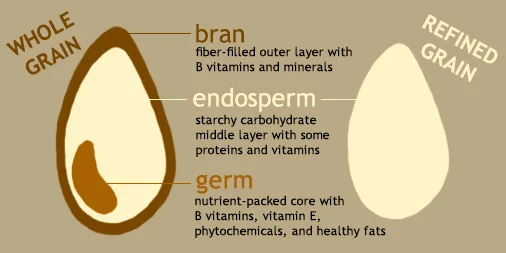Introduction:
A child's general development and wellbeing depend on having a good diet. We have a significant impact on how they develop healthy eating habits as parents and caregivers. We can make sure that our children get the nutrients they require to flourish by adhering to these rules.
Adopt a Balanced Diet:
For kids, a balanced diet is the cornerstone of good health. It ought to include a range of foods from various dietary groups. Include lots of nutritious grains, lean proteins, colorful veggies, fresh fruits, and low-fat dairy in their meals. This strategy guarantees that kids get a variety of important nutrients.
Make Eating Fruits and veggies Fun:
Make fruits and veggies pleasurable and aesthetically pleasing to entice your children to eat them. Create bright and artistic veggie platters or serve sliced fruits with yogurt. To help kids develop an appreciation for nature's wealth, let them assist in gardening or choose fruits and vegetables at the grocery store.
Whole Grains for Energy:
Replace processed grains with whole grains instead, such as whole wheat bread, brown rice, and oats. Fiber from whole grains promotes regular energy release and helps with digestion. To provide your child enduring energy throughout the day, make sandwiches with whole grain bread or choose whole grain pastas and cereals.
Lean Proteins for Growth:
Lean proteins are essential for growth because they help children grow and develop. Include sources of lean protein in their meals, such as skinless poultry, fish, beans, lentils, tofu, and eggs. These protein-rich foods offer the essential amino acids needed for tissue growth and repair.
Calcium for Strong Bones:
Calcium is essential for the formation of children's bones. include low-fat dairy foods in their diet, such as milk, yogurt, and cheese. You should look for alternatives, such as fortified plant-based milk or calcium-fortified meals, if your child is lactose intolerant or allergic to dairy.
Limit Added Sugars:
Consuming too much sugar can lead to a number of health issues. Reduce your intake of processed foods, sugary drinks, and sweets. Instead of sugary sodas, choose water, flavored infused water, homemade snacks, and fresh fruit.
Water Is Vital:
Encourage your child to sip water all day long. Limit your intake of sugary beverages and juices because they can add extra calories. Their whole health depends on staying adequately hydrated, which also benefits their digestion, focus, and physical activity.
Encourage Regular Physical Activity:
Regular physical activity, along with a balanced diet, is essential for a child's wellbeing. Encourage their favorite sports, games, and outdoor activities. This not only encourages physical fitness but also fosters a love of being active for the rest of one's life.
Conclusion:
Promoting a balanced diet in youngsters is an excellent investment in their long-term wellbeing. We can establish the groundwork for lifelong nutrition and good health by adhering to these rules and cultivating a pleasant food environment. Together, let's make healthy decisions and watch our kids develop!








Comments
Post a Comment